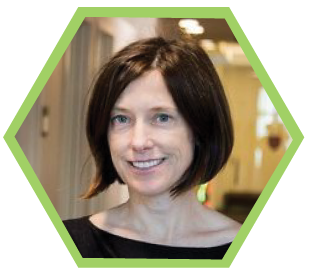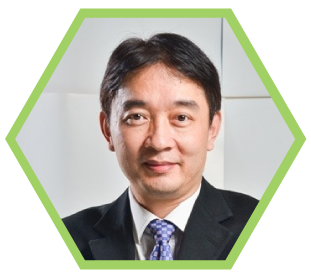KEYNOTE SPEAKER BIOGRAPHIES & ABSTRACTS
OPENING KEYNOTE SESSION

DR. JENNY BERGERON
Director of Educational Research and Evaluation, Harvard College Institutional Research, Harvard University
Biography: Dr. Jenny Bergeron is the Director of Educational Research & Evaluation at Harvard’s Harvard College Institutional Research, where she oversees evaluation and research of Harvard’s leading educational initiatives. Dr. Bergeron is a specialist in assessment and evaluation with over 10 years of experience working in Higher Education. She is also a trained psychometrician with a research focus in educational psychology. Dr. Jenny Bergeron helps Harvard faculty redefine how they teach and discover what and how students learn from the use of new technologies and instructional approaches being developed at the Bok Center and by faculty on the Harvard campus. Her efforts have helped the University in transforming its undergraduate general education curriculum, the redesign of new educational spaces and the development of innovative pedagogical approaches that meet the diversity in learning needs of Harvard undergraduates. Before coming to Harvard, she served as a leader in assessment and evaluation at Stanford University.
Title: Mindful Innovation
Abstract: Managing change is consistently ranked as one of the most difficult and critical tasks that leaders must face in higher education. Adoption of new teaching technologies in the United States has been largely driven by the rising costs of tuition, shrinking public resources and evolving workforce demands. Consequently, leaders in higher education are beginning to see technology as a mechanism to address these issues. Critical to seeding change is defining an effective process for innovation-not just the disruptive kind. This is a process that begins with an outcome in mind and works purposely to achieve it through data collection and refinement which allows for responsive rather than reactive change. In this presentation I will discuss the evolution of learning technology adoption at Harvard University. I will share how we have used data to drive responsible change including 3 examples of teaching innovations tested in Harvard’s classrooms. Discussion will incorporate experimental design challenges and useful solutions.
AFTERNOON KEYNOTE SESSION
PROFESSOR GWO-JEN HWANG
Chair Professor of the Graduate Institute of Digital Learning and Education and Dean of the College of Liberal Arts and Social Sciences, National Taiwan University of Science
Biography:
Dr. Gwo-Jen Hwang is currently a Chair Professor at the National Taiwan University of Science and Technology. He is also Dean of College of Liberal Arts and Social Sciences at the university. Dr Hwang serves as an editorial board member and a reviewer for more than 30 academic journals of educational technology and e-learning. He has also been the principal investigator of more than 100 research projects funded by Ministry of Science and Technology as well as Ministry of Education in Taiwan. His research interests include mobile and ubiquitous learning, flipped learning, digital game-based learning, and artificial intelligence in education. Dr. Hwang has published more than 700 academic papers, including more than 300 journal papers and 400 conference papers. Among those publications, more than 180 papers are published in SSCI journals. Owing to the reputation in academic research and innovative inventions in e-learning, he received the annual most Outstanding Researcher Award from the Ministry of Science and Technology of Taiwan in the years of 2007, 2010 and 2013. Moreover, in 2016, he was announced by Times Higher Education as being the most prolific and cited researcher in the world in the field of social sciences (https://www.timeshighereducation.com/news/ten-most-prolific-and-most-cited-researchers).
From Research to Promotion- Mobile Learning Experiences in Taiwan
Abstract: Mobile learning has been recognized as one of the potential research issues of technology-enhanced learning. The use of mobile, wireless communication and sensing technologies in school settings or enterprise training has been widely discussed in the past decades. On the other hand, several researchers have indicated the challenges and importance of considering the characteristics and learning objectives of different disciplines when designing mobile learning research and activities. The aim of this talk is to review the current states of mobile learning studies and their design considerations for specific disciplines. To this end, various practical applications of mobile learning studies for different disciplines are introduced in this seminar, such as their applications in social studies, natural science, chemistry, language learning, computer engineering, nursing education, and architecture design courses. Moreover, the experience and thinking of conducting these mobile learning studies as well as the promotion of the research results to nation-wide school settings are presented. It is expected that, via systematically examining and comparing these mobile learning studies, this talk can inspire researchers and school teachers to discover interesting research issues and to design effective mobile learning approaches for practical applications in the future.

